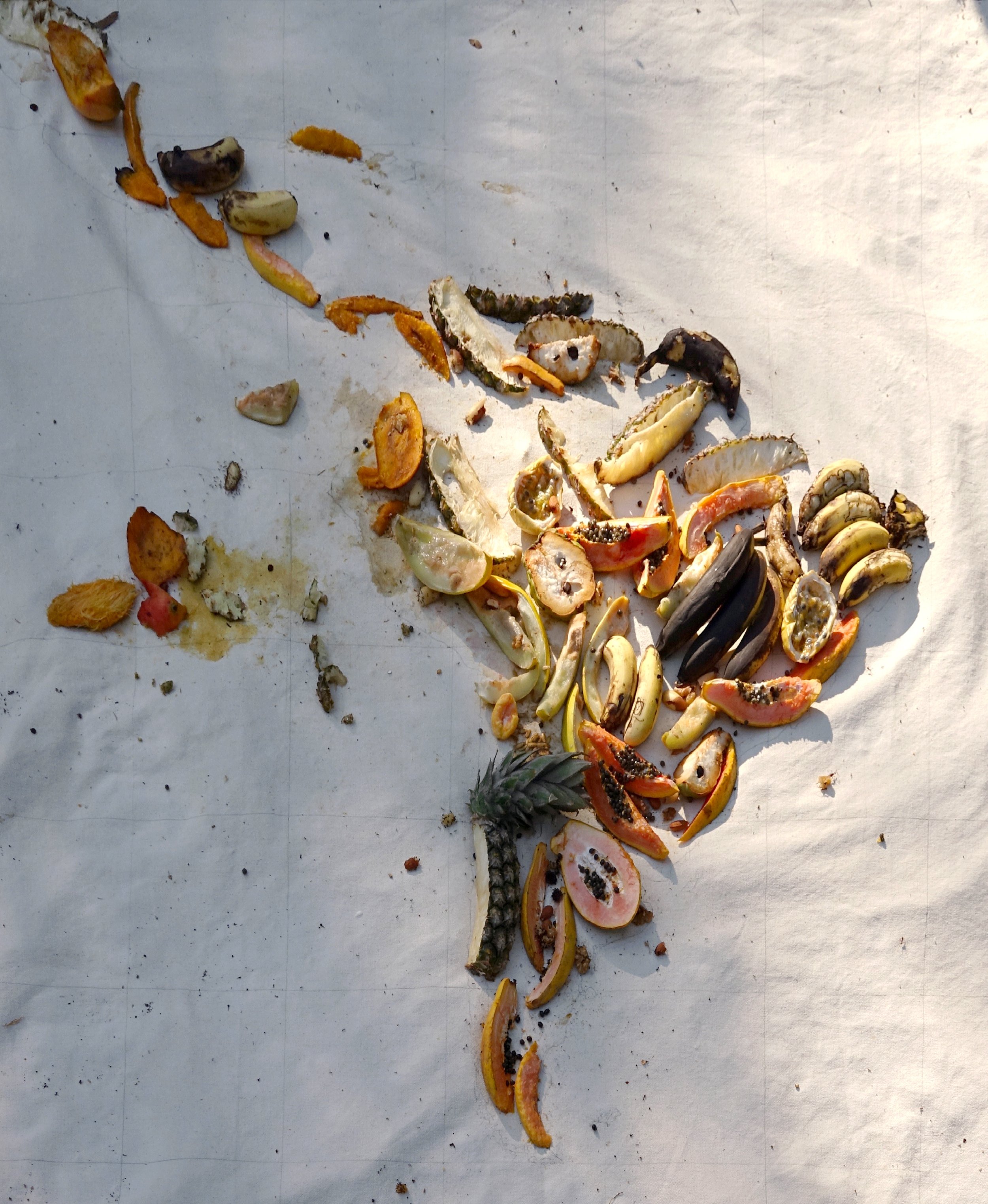Fueron las Hormigas (it was the ants)
The map with fruits placed on top was left exposed to the elements for four days in the parking lot of a hotel in the Amazonian region of Mato Grosso. The hotel is located inside a forested area inhabited by a wide range of animals and insects. The scene was filmed every day, and the footage depicts insects taking away fruits in small quantities as if looting the territory. However, the large pieces of fruit would disappear overnight and there was no way to trace what happened. After four days the map was virtually emptied of all fruits.
The realm of the exotic involves the construction of otherness as an object of desire. As such, it embodies the drive to conquer and to appropriate that otherness. The idea of Latin America associated with a montage of tropical fruits as its territory invites to entertain a metaphor as a symbolic interpretation of history.
Ostentatious images of excess and exuberance were attributes ascribed to Latin America by the European baroque. Cornucopian representations envisioned a land of plenty waiting to be exploited by the expanding empires of Europe. These later became re-appropriated and creolized by the colonial baroque. After independence, those representations served to empower local elites of the state nations that projected upon them expectations of riches and opportunity for development. The local elites and not those descending from natives and African slaves declared themselves the inheritors of that paradise in a self-colonizing fashion.
With the expansion of European empires into the appropriated territories of the newly "discovered" continent, their project of bringing civilization through education and religious conversion simultaneously relied on subjugating the native populations to provide cheap labor. The re-invention of racism through the instauration of slavery for the natives and the importation of slaves from Africa, along with the violent takeover of the land and its resources, defined the destiny of the later-to-be nation states as territories in which forced appropriation or plain robbery was the expected norm. In addition, since robbery was to be practiced on a major scale by the colonizing power, accountability was deemed unnecessary from the start. As always, those who remain visible are the small agents to be blamed, as in the case of street robbers and looters. Meanwhile, the expropriation of capital and large-scale resources remained untraceable including those who carried it out. The extractivist agenda of the empires of Europe inherited by the local elites of the modern state nations created a territory that is perennially defined by the systemic anonymous vanishing of capital and resources.
